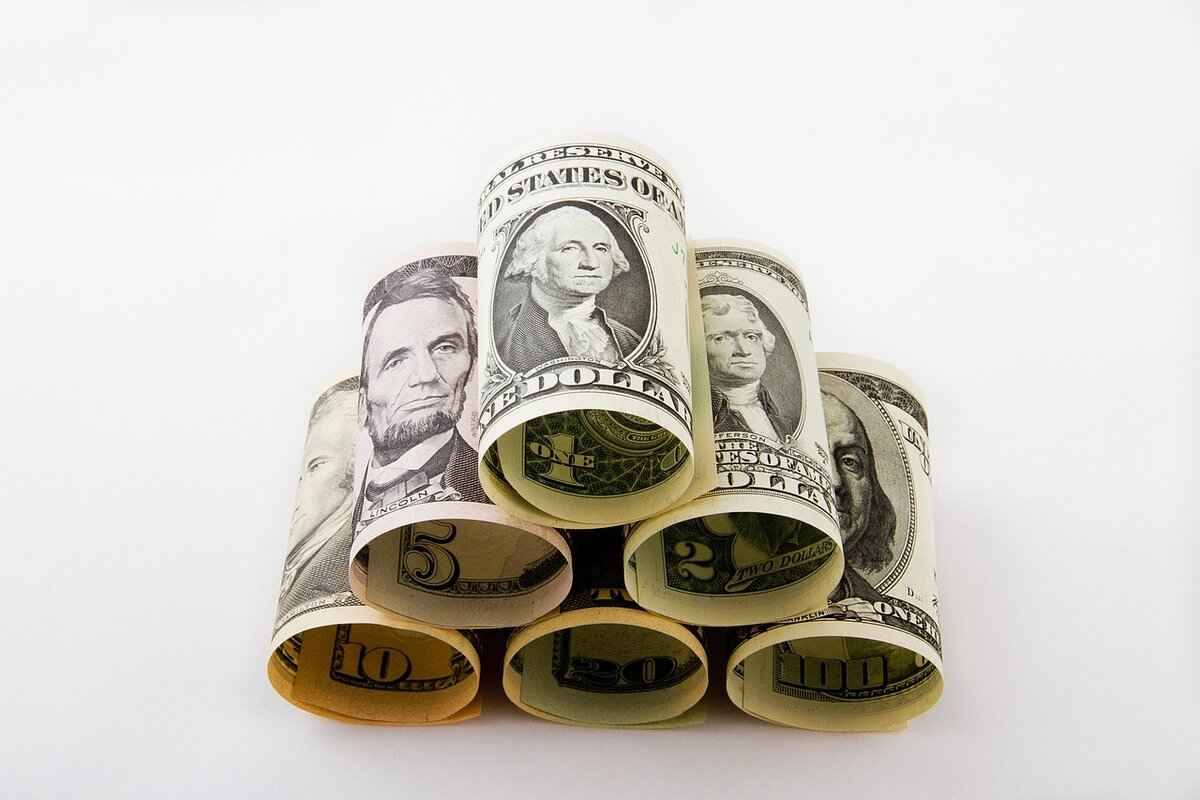This article delves into the evolving role of Siliguri as a significant trade hub in India, emphasizing its strategic location, economic potential, and the various factors that are contributing to its rapid growth in trade activities.
1. Strategic Location of Siliguri
Siliguri is uniquely positioned at the crossroads of India, Nepal, Bhutan, and Bangladesh. This geographical advantage not only facilitates cross-border trade but also enhances its status as a logistics center for various industries, including textiles and electronics.
2. Economic Significance of Siliguri
The economic landscape of Siliguri is transforming swiftly, with multiple sectors playing pivotal roles in its growth. Key industries include:
- Agriculture: Known for its tea plantations and diverse horticultural products.
- Tourism: Attracting visitors to its scenic beauty and cultural richness.
- Manufacturing: Emerging as a hub for small-scale industries.
3. Infrastructure Development in Siliguri
Robust infrastructure development is crucial for supporting trade activities. Notable developments include:
- Transportation Networks: Improved roads, railways, and air connectivity.
- Logistics Parks: Establishing modern warehousing solutions to handle increased trade volumes.
4. Government Initiatives Supporting Trade
Government policies are vital in promoting trade and investment. Key initiatives include:
- Special Economic Zones (SEZs): Designed to attract foreign investment.
- Trade Facilitation Measures: Streamlining processes to reduce bureaucracy.
5. Challenges and Opportunities Ahead
While Siliguri’s growth is promising, it faces challenges such as:
- Infrastructure Gaps: Addressing these is crucial for maintaining competitiveness.
- Leveraging Technology: Embracing tech solutions can enhance efficiency.
6. Conclusion: Siliguri’s Future as a Trade Hub
With its strategic location, diverse economy, and ongoing development initiatives, Siliguri is poised to become a key player in regional trade, promising a bright future as a vital trade hub in India.

1. Strategic Location of Siliguri
The Growing Importance of Siliguri, West Bengal as a Trade Hub
Siliguri, located in the northern part of West Bengal, India, serves as a crucial nexus for trade, owing to its unique geographical position. This city acts as a gateway to the northeastern states of India and neighboring countries such as Nepal, Bhutan, and Bangladesh. Its strategic location not only facilitates cross-border trade but also enhances its status as a vital logistics center for various industries.
Significance of Siliguri’s Geographical Position
The geographical advantages of Siliguri are manifold. It is situated at the foothills of the Himalayas, making it a pivotal point for the movement of goods. The city is well-connected through road, rail, and air networks, which are essential for efficient logistics operations. This connectivity allows for the swift transportation of products to and from various regions, thereby enhancing trade activities.
Logistics Center for Diverse Industries
Due to its location, Siliguri has evolved into a logistics hub catering to a variety of industries including agriculture, textiles, and pharmaceuticals. The establishment of logistics parks and warehousing facilities has further bolstered its capacity to handle increased trade volumes. As businesses seek to optimize their supply chains, Siliguri’s infrastructure development plays a crucial role in attracting investment and fostering economic growth.
Cross-Border Trade Opportunities
Siliguri’s proximity to international borders presents significant opportunities for cross-border trade. The trade routes connecting India with its neighboring countries are crucial for the export of goods such as tea, spices, and textiles. This not only enhances local economies but also creates employment opportunities, making Siliguri a vital player in regional trade dynamics.
Conclusion
In conclusion, Siliguri’s strategic location is a key factor in its emergence as a significant trade hub. Its logistical advantages and connectivity facilitate trade between India and neighboring countries, enhancing its role as a logistics center for various industries. As infrastructure continues to develop and trade policies evolve, Siliguri is poised for further growth, promising a vibrant future in the realm of trade.

2. Economic Significance of Siliguri
The Economic Significance of Siliguri is becoming increasingly prominent as the region undergoes rapid transformation, driven by various sectors that contribute to its economic growth. This article delves into the diverse elements that make Siliguri an attractive destination for investors and businesses alike.
Siliguri’s evolving economic landscape is characterized by three main sectors: agriculture, tourism, and manufacturing. Each of these sectors plays a vital role in not only sustaining the local economy but also in attracting external investments.
- Agriculture: The backbone of Siliguri’s economy, agriculture remains a crucial sector. The region is particularly famous for its tea plantations, producing some of the finest teas that cater to both domestic and international markets. Additionally, diverse horticultural products such as fruits and vegetables are significant contributors to the local economy.
- Tourism: Siliguri’s scenic beauty and rich cultural heritage make it a hub for tourism. The influx of visitors not only boosts local businesses but also enhances infrastructure development, further stimulating economic growth.
- Manufacturing: The manufacturing sector in Siliguri is gaining momentum, with various industries establishing operations in the region. This growth is supported by favorable government policies and initiatives aimed at promoting trade.
Furthermore, the government’s focus on improving infrastructure, including transportation networks and logistics parks, significantly enhances Siliguri’s capacity to handle trade activities. This development is critical for ensuring efficient movement of goods and services, making the region even more appealing to investors.
In conclusion, Siliguri’s economic significance is underscored by its strategic location, diverse sectors, and ongoing development initiatives. As the region continues to evolve, it holds immense potential for growth and investment, solidifying its status as a vital trade hub in India.
2.1 Agriculture and Horticulture
Agriculture and Horticulture play a pivotal role in the economy of Siliguri, contributing significantly to both local livelihoods and the broader market. This region, nestled in the foothills of the Himalayas, is renowned for its lush tea plantations and a variety of horticultural products that cater to both domestic and international consumers.
With its unique climate and fertile soil, Siliguri is particularly well-suited for the cultivation of high-quality tea. The tea estates here are not just agricultural sites; they are cultural icons that reflect the rich heritage of the region. The tea industry is a major economic driver, providing employment to thousands and generating significant revenue through exports. The tea produced in Siliguri is recognized for its distinctive flavor and quality, making it a sought-after product in global markets.
In addition to tea, Siliguri is also famous for its diverse range of horticultural products. The region produces a variety of fruits and vegetables, including oranges, pineapples, and various greens, which are exported to different parts of India and beyond. The horticultural sector not only boosts the local economy but also plays a crucial role in ensuring food security and nutrition for the population.
| Product | Export Market | Economic Impact |
|---|---|---|
| Tea | Global | High |
| Fruits | Domestic & International | Moderate |
| Vegetables | Domestic | Significant |
The growth of agriculture and horticulture in Siliguri is supported by various government initiatives aimed at enhancing productivity and sustainability. These efforts include providing farmers with access to modern agricultural techniques and technologies, which help in improving yield and reducing waste.
In conclusion, agriculture and horticulture are not just components of Siliguri’s economy; they are vital lifelines that support the community’s way of life. With ongoing advancements and support, this sector is poised for further growth, ensuring that Siliguri remains a key player in the agricultural landscape of India.
2.1.1 Tea Industry in Siliguri
The tea industry is a cornerstone of the economy in Siliguri, West Bengal, significantly impacting both local and international markets. Renowned for its high-quality tea, Siliguri is home to numerous tea estates that have established a reputation for excellence over the years. This article delves into the various aspects of the tea industry in Siliguri, highlighting its economic significance, production processes, and global reach.
1. Economic Impact of the Tea Industry
- The tea industry in Siliguri provides employment opportunities for thousands of locals, contributing to the livelihoods of many families.
- It plays a vital role in the region’s GDP, with tea exports generating significant revenue.
- The industry supports ancillary businesses, including packaging, transportation, and tourism, creating a ripple effect in the local economy.
2. Quality of Siliguri Tea
Siliguri’s unique climatic conditions, characterized by rich soil and favorable weather, contribute to the production of premium tea varieties. The region is particularly known for:
- Darjeeling Tea: Often referred to as the “Champagne of teas,” it is highly sought after for its distinctive flavor and aroma.
- Assam Tea: Known for its robust flavor and dark color, it is a staple in many households.
3. Global Reach and Export Potential
The tea produced in Siliguri is not only popular in India but also finds its way into international markets. The estates are increasingly focusing on sustainable practices and quality control to meet global standards. Exporting to countries like the USA, UK, and Japan, Siliguri tea has carved a niche for itself on the world stage.
4. Challenges Faced by the Industry
Despite its success, the tea industry in Siliguri faces several challenges:
- Climate change affecting crop yield and quality.
- Competition from other tea-producing regions.
- Labor issues and the need for fair wages and working conditions for workers.
5. Conclusion
In conclusion, the tea industry in Siliguri is not just an economic powerhouse; it is a vital part of the region’s identity and culture. With ongoing efforts to improve quality and sustainability, Siliguri’s tea is poised to maintain its esteemed position in both domestic and international markets.
2.1.2 Horticultural Exports
Siliguri has emerged as a vital center for horticultural exports, significantly shaping the region’s economy and providing numerous employment opportunities. The strategic location of Siliguri, nestled in the foothills of the Himalayas, allows for easy access to both national and international markets. This accessibility is crucial for the rapid transportation of perishable goods, such as fruits and vegetables, which are the backbone of its horticultural exports.
Among the most notable products exported from Siliguri are fresh fruits like bananas, pineapples, and oranges, along with a variety of vegetables that cater to both domestic and international consumers. The region’s diverse climate and fertile soil contribute to the high quality of these agricultural products, making them highly sought after.
Furthermore, the local government has implemented various initiatives to support the horticultural sector, including subsidies for farmers and investment in modern agricultural techniques. These measures have not only improved yield but also enhanced the quality of produce, ensuring that Siliguri remains competitive in the global market.
- Export Growth: The horticultural sector has seen a steady increase in export volumes, contributing to the local economy.
- Employment Opportunities: The growth of this sector has created numerous jobs in farming, packaging, and logistics.
- Market Expansion: Siliguri’s produce is now reaching markets in the Middle East, Southeast Asia, and beyond.
In conclusion, the significance of Siliguri’s horticultural exports cannot be overstated. As the region continues to develop its agricultural capabilities and expand its market reach, it promises to play an even more crucial role in the economy, benefiting local farmers and businesses alike.
2.2 Tourism Development
Tourism Development in Siliguri has emerged as a pivotal aspect of the region’s economic landscape, significantly contributing to its growth and development. Nestled in the foothills of the Himalayas, Siliguri is not just a gateway to the North-East but also a destination in its own right, attracting a diverse range of visitors.
The city’s scenic beauty is one of its biggest draws. Surrounded by lush tea gardens, rolling hills, and the majestic Himalayas, Siliguri offers a multitude of attractions for nature lovers and adventure seekers alike. Tourists can explore the serene Mahananda Wildlife Sanctuary, which is home to a variety of flora and fauna, or indulge in trekking and river rafting in the nearby hills.
In addition to its natural beauty, Siliguri boasts a rich cultural heritage. The city is a melting pot of various cultures, reflected in its festivals, cuisine, and traditions. Visitors can experience the vibrant local culture through festivals like Durga Puja and Losar, which showcase the region’s diversity and communal harmony.
The influx of tourists has led to a boost in local businesses, particularly in the hospitality sector. Numerous hotels, guesthouses, and restaurants have sprung up to cater to the growing demand, thereby creating job opportunities for the local population. Furthermore, the development of infrastructure, such as improved roads and transportation facilities, has enhanced accessibility, making it easier for tourists to explore the region.
Moreover, the government has recognized the potential of tourism as a key economic driver and is implementing various initiatives to promote the sector. These include tourism fairs and promotional campaigns aimed at highlighting Siliguri’s attractions both nationally and internationally.
In conclusion, the tourism sector in Siliguri is not just about attracting visitors; it is about creating a sustainable economic model that benefits the local community. As the city continues to develop its tourism offerings, it is poised to become a significant player in the regional tourism landscape, further enhancing its economic prospects.

3. Infrastructure Development in Siliguri
Infrastructure development in Siliguri is a critical factor in enhancing its capabilities as a major trade hub. The city, strategically located at the crossroads of India, Nepal, and Bhutan, is witnessing a surge in trade activities that necessitate the establishment of a robust infrastructure framework. This development encompasses various components, including transportation networks, logistics parks, and warehousing facilities, all of which are essential for the seamless movement of goods and services.
1. Importance of Transportation Networks
Efficient transportation networks are the backbone of any thriving trade hub. In Siliguri, the connectivity provided by roads, railways, and air routes significantly enhances trade efficiency. The National Highway 27 and the North East Frontier Railway play pivotal roles in facilitating the movement of goods across borders, thereby reducing transit times and costs.
2. Development of Logistics Parks
To accommodate the growing demand for trade, the establishment of modern logistics parks in Siliguri is underway. These parks are designed to streamline supply chain operations by providing integrated services such as transportation, storage, and distribution. The presence of such facilities not only attracts businesses but also creates job opportunities, contributing to the local economy.
3. Warehousing Facilities
In addition to logistics parks, the development of state-of-the-art warehousing facilities is crucial. These warehouses are equipped with advanced technology for inventory management and distribution, ensuring that businesses can efficiently manage their stock levels and meet customer demands promptly.
4. Conclusion
In conclusion, robust infrastructure development in Siliguri is essential for supporting its trade activities. By focusing on enhancing transportation networks, establishing logistics parks, and improving warehousing facilities, Siliguri is poised to strengthen its position as a leading trade hub in the region. This strategic approach not only benefits local businesses but also contributes to the overall economic growth of the area.
3.1 Transportation Networks
Siliguri’s Transportation Networks are essential for its growth as a significant trade hub in West Bengal, India. This section delves into the various modes of transportation that facilitate trade and the movement of goods, highlighting their importance in the region’s economic landscape.
1. Road Networks
The road networks in Siliguri are extensive, connecting it to major cities and neighboring countries. The National Highways and state roads provide vital links for transporting goods efficiently. Regular maintenance and upgrades of these roads ensure that heavy vehicles can navigate them without delays, promoting smoother trade operations.
2. Railway Connectivity
Siliguri’s railway station serves as a significant junction on the Indian Railways network. It provides freight services that are crucial for transporting bulk goods, such as agricultural products and manufactured items. The railway system’s reliability and cost-effectiveness make it a preferred choice for businesses looking to move large quantities of goods quickly.
3. Air Travel
With the presence of Bagdogra Airport, located just a short distance from Siliguri, air travel plays a pivotal role in facilitating trade. The airport connects Siliguri to major Indian cities and international destinations, enabling quick transport of perishable goods and high-value products. This accessibility enhances Siliguri’s attractiveness as a trade hub.
4. Impact on Local Economy
The efficiency of these transportation networks significantly impacts Siliguri’s local economy. By ensuring timely delivery of goods, businesses can operate more effectively, leading to increased productivity and profitability. Moreover, improved transportation facilities attract more investors and businesses, further contributing to economic growth.
5. Future Developments
Ongoing infrastructure projects aim to enhance Siliguri’s transportation capabilities. Government initiatives and public-private partnerships are expected to bring in advanced logistics solutions, further streamlining the movement of goods and solidifying Siliguri’s position as a key trade hub in the region.
In conclusion, Siliguri’s transportation networks are not just vital for local trade; they are a cornerstone for its economic development. With continuous improvements, these networks will further bolster the region’s role in facilitating trade and ensuring efficient movement of goods.
3.2 Logistics Parks and Warehousing
The establishment of logistics parks and modern warehousing solutions in Siliguri enhances its capacity to handle increased trade volumes and improve supply chain efficiency. This development is crucial for the region as it positions Siliguri as a significant player in the logistics and trade sector, especially given its strategic location at the crossroads of India, Nepal, Bhutan, and Bangladesh.
With the rise of e-commerce and the growing demand for rapid delivery services, logistics parks in Siliguri are designed to cater to these needs. They provide essential infrastructure that allows businesses to store, manage, and distribute goods more effectively. The parks are equipped with modern facilities, including:
- Temperature-controlled storage for perishable goods, ensuring quality and freshness.
- Automated handling systems that streamline the movement of products within the warehouse.
- Advanced inventory management systems that enhance tracking and reduce losses.
Furthermore, these logistics parks are strategically located near major transportation routes, including highways and railways, facilitating easy access for trucks and freight services. This connectivity is vital for reducing transit times and costs, thereby improving overall supply chain efficiency.
In addition to enhancing operational capabilities, the establishment of these parks also creates employment opportunities for the local population. As businesses expand their logistics operations, they require a workforce skilled in various areas, from warehousing to transportation management.
Moreover, the government’s commitment to developing infrastructure in Siliguri through initiatives such as Special Economic Zones (SEZs) further supports the growth of logistics parks. These zones offer tax incentives and streamlined regulations, attracting both domestic and international investments.
In conclusion, the development of logistics parks and modern warehousing solutions in Siliguri is a game-changer for the region. It not only boosts its capacity to manage increased trade volumes but also plays a pivotal role in enhancing supply chain efficiency, making Siliguri a vital hub for trade in the region.

4. Government Initiatives Supporting Trade
Government Initiatives Supporting Trade
The role of government policies and initiatives in facilitating trade and investment in Siliguri cannot be overstated. These measures are crucial in establishing a favorable business environment that encourages both local and foreign investments. As Siliguri continues to evolve into a significant trade hub, the government has implemented various strategies aimed at enhancing its economic landscape.
- Special Economic Zones (SEZs): The government has introduced SEZs in Siliguri to attract foreign investment. These zones offer tax incentives and simplified regulations, making it easier for businesses to set up operations. This initiative is designed to bolster export capabilities and create job opportunities within the region.
- Trade Facilitation Measures: Streamlining trade processes is a priority for the government. Initiatives such as digital documentation and simplified customs procedures have been introduced to reduce bureaucratic hurdles. These measures not only enhance efficiency but also encourage businesses to engage in trade activities.
- Infrastructure Development: Recognizing the importance of robust infrastructure, the government is investing in transportation networks, logistics parks, and warehousing facilities. Improved infrastructure is vital for supporting increased trade volumes and ensuring the efficient movement of goods.
- Skill Development Programs: To ensure that the workforce is equipped to meet the demands of a growing trade sector, the government has launched various skill development programs. These initiatives aim to enhance the employability of local youth and provide businesses with a skilled labor force.
In conclusion, the government’s proactive stance in promoting trade and investment in Siliguri is a key driver of the region’s economic growth. By implementing strategic initiatives and fostering a conducive environment for business, Siliguri is well on its way to becoming a prominent trade hub in India.
4.1 Special Economic Zones (SEZs)
The Role of Special Economic Zones (SEZs) in Siliguri’s Economic Landscape
The introduction of Special Economic Zones (SEZs) in Siliguri marks a significant turning point for the region’s economy. Designed with the primary goal of attracting foreign investment and enhancing export capabilities, these zones are poised to transform Siliguri into a bustling trade hub. This article delves into the various aspects of SEZs and their impact on the economic growth of Siliguri.
- Attracting Foreign Investment: SEZs offer a range of incentives, including tax breaks and simplified regulations, making them appealing to foreign investors. This influx of capital can lead to the establishment of new businesses and job creation.
- Boosting Export Capabilities: By focusing on export-oriented industries, SEZs in Siliguri can enhance the region’s ability to compete in global markets. This is particularly vital for sectors such as manufacturing and agriculture, which can leverage local resources.
- Infrastructure Development: The establishment of SEZs often leads to improved infrastructure, including better transportation networks and logistics facilities. This is crucial for streamlining supply chains and facilitating trade.
- Job Creation: As businesses set up operations within SEZs, they create numerous job opportunities for local residents. This not only boosts the economy but also improves the standard of living for many families.
- Innovation and Technology Transfer: SEZs can foster an environment of innovation, where companies are encouraged to adopt new technologies. This transfer of knowledge can significantly enhance productivity and efficiency.
In conclusion, the establishment of SEZs in Siliguri is a strategic initiative aimed at propelling the region towards a prosperous economic future. By attracting foreign investments and enhancing export capabilities, SEZs are set to play a pivotal role in the region’s growth trajectory.
4.2 Trade Facilitation Measures
Trade facilitation measures implemented by the government of Siliguri are essential in transforming the region into a thriving trade hub. These initiatives aim to streamline processes, reduce bureaucracy, and create a business-friendly environment that encourages growth and investment.
One of the primary objectives of these measures is to enhance the efficiency of trade operations. By simplifying documentation and reducing clearance times at borders, businesses can operate more smoothly. This is particularly important for importers and exporters who rely on timely deliveries to maintain their competitive edge in the market.
Additionally, the government has introduced digital platforms that facilitate online submissions and approvals, minimizing the need for physical paperwork. This not only speeds up the process but also reduces the chances of errors, which can lead to costly delays. By embracing technology, Siliguri is positioning itself as a modern trading hub.
Training programs for local businesses are also part of these trade facilitation measures. These programs educate entrepreneurs about compliance requirements, export procedures, and best practices in logistics management. As a result, businesses are better equipped to navigate the complexities of international trade.
Moreover, the establishment of trade liaison offices helps bridge the gap between the government and the business community. These offices serve as a point of contact for businesses seeking information and assistance regarding trade regulations and opportunities.
In conclusion, the various trade facilitation measures implemented by the government of Siliguri are crucial in creating a supportive ecosystem for businesses. By focusing on efficiency, technology integration, and education, these initiatives not only reduce bureaucratic hurdles but also foster a culture of innovation and growth in the region.

5. Challenges and Opportunities Ahead
As Siliguri continues to emerge as a significant trade hub, it is imperative to recognize the challenges that could impede its progress, as well as the opportunities that lie ahead. Addressing these challenges effectively will be crucial for Siliguri to fully capitalize on its potential in both regional and global markets.
5.1 Addressing Infrastructure Gaps
The rapid growth of trade activities in Siliguri has highlighted several infrastructure gaps. Insufficient transportation networks and inadequate warehousing facilities can hinder the efficient movement of goods. To maintain a competitive edge, it is essential for local authorities and stakeholders to invest in upgrading existing infrastructure and developing new facilities. This includes:
- Enhancing road connectivity to major highways
- Expanding railway networks to facilitate cargo transport
- Building modern logistics parks equipped with state-of-the-art technology
5.2 Leveraging Technology in Trade
In today’s digital age, embracing technology is vital for improving trade efficiency. Siliguri can leverage innovative solutions such as:
- Implementing advanced inventory management systems
- Utilizing data analytics for market trends and consumer behavior
- Enhancing online platforms for better visibility and reach
By adopting these technological advancements, businesses in Siliguri can streamline their processes, reduce costs, and ultimately, foster sustainable growth.
5.3 Enhancing Skill Development
Another challenge that Siliguri faces is the need for a skilled workforce. Investing in education and training programs will equip the local population with the necessary skills to meet the demands of the evolving trade landscape. Collaboration between educational institutions and industries can create tailored programs that focus on:
- Logistics and supply chain management
- Information technology and digital marketing
- Customer service and sales techniques
By addressing these challenges head-on, Siliguri can not only enhance its position as a trade hub but also unlock new opportunities for economic development.
5.1 Addressing Infrastructure Gaps
Addressing Infrastructure Gaps in Siliguri: A Pathway to Growth
Siliguri, located in the northern part of West Bengal, is increasingly recognized as a vital trade hub in India. However, to sustain and enhance its competitive edge, it is imperative to identify and address the existing infrastructure gaps. This will not only support its current trade activities but also pave the way for future growth.
Current Infrastructure Challenges
- Transportation Limitations: Despite its strategic location, Siliguri faces challenges with its transportation networks. Roads and railways require significant upgrades to handle the increasing volume of goods efficiently.
- Logistics Facilities: The lack of modern logistics parks and warehousing solutions hampers the ability to manage trade effectively, leading to delays and increased costs for businesses.
- Utility Services: Inadequate power supply and water management systems further complicate operational efficiency for industries in the region.
Proposed Solutions for Infrastructure Development
- Investment in Transportation: Upgrading existing roads and railways, along with enhancing air connectivity, will facilitate smoother trade operations and attract more businesses to the area.
- Development of Logistics Parks: Establishing state-of-the-art logistics parks can streamline supply chains and improve the overall efficiency of trade activities.
- Public-Private Partnerships: Encouraging collaborations between the government and private sector can lead to innovative solutions and funding for infrastructure projects.
Future Outlook
By addressing these infrastructure gaps, Siliguri can solidify its position as a leading trade hub in India. The focus on developing robust infrastructure will not only enhance its current capabilities but also attract new investments, driving economic growth and job creation in the region.
Conclusion
In conclusion, tackling the infrastructure challenges faced by Siliguri is essential for its continued growth as a trade hub. With strategic investments and collaborative efforts, Siliguri can achieve its potential and support the broader economic landscape of West Bengal and beyond.
5.2 Leveraging Technology in Trade
Leveraging Technology in Trade has become a crucial aspect of modern business practices, particularly in fast-growing regions like Siliguri, West Bengal. As the area continues to evolve into a significant trade hub, the integration of advanced technologies in logistics and trade processes is essential for enhancing operational efficiency and ensuring sustainable growth.
In today’s global marketplace, businesses must adapt to the rapidly changing technological landscape. By embracing innovative solutions, companies in Siliguri can streamline their operations, reduce costs, and improve service delivery. Here are some key technologies that are transforming trade in the region:
- Automation: Automation technologies, such as robotics and artificial intelligence, are revolutionizing warehousing and distribution processes. Automated systems can efficiently manage inventory, process orders, and reduce human error, leading to faster turnaround times.
- Data Analytics: Utilizing big data analytics allows businesses to gain valuable insights into market trends, customer preferences, and supply chain dynamics. This information can drive strategic decision-making and enhance competitiveness.
- Blockchain Technology: Implementing blockchain can enhance transparency and security in trade transactions. It provides a decentralized ledger that ensures all parties involved have access to accurate and real-time information, thereby reducing fraud and disputes.
- Internet of Things (IoT): IoT devices can monitor and track shipments in real-time, providing businesses with critical information about the location and condition of their goods. This technology enhances supply chain visibility and allows for proactive management of logistics.
Moreover, the adoption of e-commerce platforms is reshaping how businesses in Siliguri engage with customers. By leveraging online marketplaces, local traders can expand their reach beyond regional boundaries, tapping into national and international markets. This shift not only increases sales opportunities but also fosters a more competitive business environment.
As Siliguri continues to embrace technology in its trade practices, it is poised to unlock new avenues for growth and development. By investing in technological advancements, businesses can enhance their operational efficiency, thereby ensuring a prosperous future in the ever-evolving landscape of global trade.

6. Conclusion: Siliguri’s Future as a Trade Hub
The Growing Importance of Siliguri, West Bengal as a Trade Hub
Siliguri, located in the northern part of West Bengal, is rapidly establishing itself as a key trade hub in India. This transformation is driven by its strategic location, diverse economy, and proactive development initiatives. As a gateway to the northeastern states of India and neighboring countries like Nepal, Bhutan, and Bangladesh, Siliguri’s geographical advantages are pivotal for enhancing trade and commerce.
| Factors Contributing to Siliguri’s Growth | Description |
|---|---|
| Strategic Location | Situated at the crossroads of major trade routes, facilitating easy access to both domestic and international markets. |
| Diverse Economy | Incorporates agriculture, tourism, and manufacturing, attracting a wide range of investments. |
| Infrastructure Development | Ongoing improvements in transportation and logistics are essential for supporting increased trade activities. |
| Government Initiatives | Policies aimed at promoting trade, including Special Economic Zones (SEZs) and trade facilitation measures. |
The economic landscape of Siliguri is diverse, with agriculture, particularly tea production and horticulture, being significant contributors. The region’s tea estates are renowned for producing high-quality tea that is sought after both in India and globally. Additionally, the flourishing horticultural sector, which includes fruits and vegetables, plays a crucial role in boosting local employment and export opportunities.
Tourism also adds to Siliguri’s economic fabric, drawing visitors with its scenic beauty and cultural heritage. This influx of tourists not only benefits local businesses but also encourages infrastructure development, further enhancing the region’s trade capabilities.
To support its burgeoning trade activities, Siliguri is witnessing robust infrastructure development, including improved transportation networks, logistics parks, and warehousing facilities. These advancements are critical for facilitating the efficient movement of goods and ensuring that Siliguri remains competitive in the regional market.
Despite the promising outlook, Siliguri faces challenges such as infrastructure gaps and the need to leverage technology in trade processes. Addressing these issues will be vital for realizing its full potential as a trade hub.
In conclusion, Siliguri’s strategic location, economic diversity, and commitment to ongoing development initiatives position it as a vital player in regional trade. The future looks bright for this emerging trade hub, as it continues to evolve and adapt to the changing dynamics of commerce in India.
Frequently Asked Questions
- What makes Siliguri a strategic trade hub?
Siliguri’s geographical location serves as a crucial link between India and its neighboring countries, making it an ideal logistics center for trade. Its proximity to major markets enhances its role in facilitating the movement of goods.
- How does the tea industry impact Siliguri’s economy?
The tea industry is a cornerstone of Siliguri’s economy, with numerous estates producing high-quality tea that is highly sought after both locally and internationally. This sector not only provides employment but also boosts local agriculture.
- What government initiatives support trade in Siliguri?
The government has introduced several initiatives, including Special Economic Zones (SEZs) and trade facilitation measures, aimed at attracting investments and streamlining processes to encourage business growth in Siliguri.
- What are the challenges facing Siliguri as a trade hub?
While Siliguri is on the rise, it faces challenges such as infrastructure gaps and the need to leverage technology in trade processes. Addressing these issues is vital for sustaining its growth as a trade hub.
- How is tourism contributing to Siliguri’s economy?
Tourism plays a significant role in Siliguri’s economic development by attracting visitors to its scenic landscapes and cultural heritage, which in turn boosts local businesses and infrastructure.














